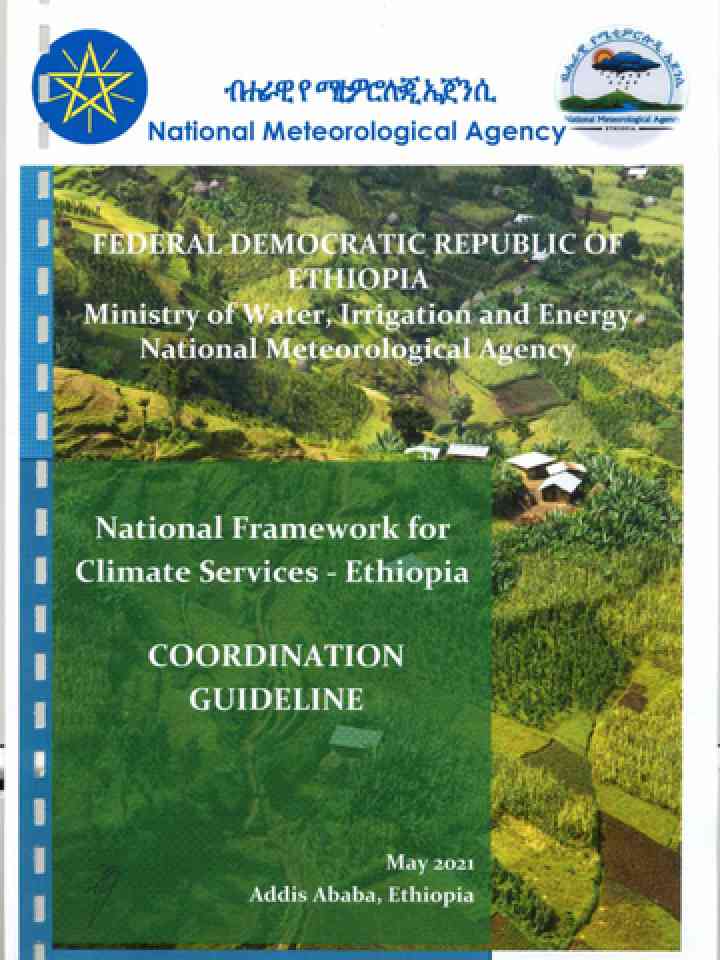National Framework for Climate Services - Ethiopia: Coordination Guideline
These are the coordination guidelines for the National Framework for Climate Services (NFCS) of Ethiopia. The publication discusses the increasing vulnerability of Ethiopia's main economic sectors and livelihoods to weather and climate extremes. Despite national and international commitments to mitigate these impacts, practical action and collaboration are needed to transform these commitments into resilience-building efforts. Since early 2018, collaborative efforts among Ethiopian climate service institutions have led to the creation of the National Framework for Climate Services (NFCS). This framework includes a strategic plan and a costed action plan aimed at providing timely, reliable, and high-resolution climate services to various user groups, thereby supporting the country's Climate Resilient Green Economy (CRGE) strategy and other development plans.
The key takeaways from this publication highlight the ambitious goals of the NFCS strategic plan, which aims to deliver customized climate services and build institutional capacity. Effective delivery of these services in critical sectors such as water, energy, agriculture, health, disaster risk management, and environmental protection requires coordinated actions among climate institutions. The successful joint implementation of the NFCS relies on a coordination guideline that outlines institutional arrangements, principles, procedures, responsibilities, and accountability mechanisms, ensuring all climate institutions work towards common objectives.
Explore further
